What do you expect to see when you step foot on an urban rooftop? “A farm” probably isn’t high on the list, but if you make your way to the top of Building 3 in the Brooklyn Navy Yard, you will, in fact, find yourself surrounded by edible greenery. That’s due in no small part to the work of Ben Flanner, President & Director of Agriculture at Brooklyn Grange Rooftop Farm, where the peppers and herbs that give our Rooftop Garden Hot Sauce its unique flavor are grown. Getting hungry?
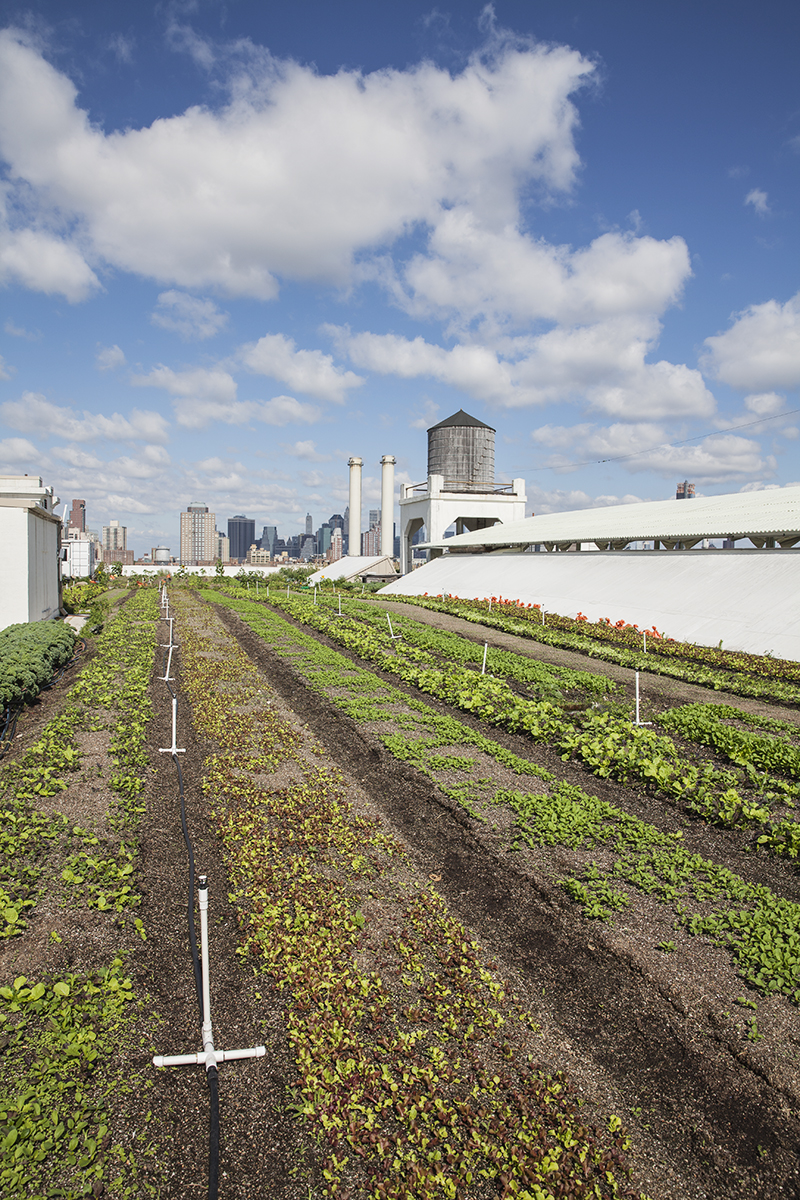
The Brooklyn Grange fields atop a building in the Brooklyn Navy yard make up the world’s largest rooftop soil farm.
As if “President & Director of Agriculture” weren’t impressive enough, Ben’s also one of Brooklyn Grange’s co-founders; he started the venture with Vice President Anastasia Cole Plakias and Chief Operating Officer Gwen Schantz in 2010. Armed with a background in management consulting and financial marketing—neither of which, you may notice, are farming—Ben took quickly to his new line of work. “Creating more green spaces in cities is ecologically, socially, and economically valuable on so many levels,” he says. “Personally, though, the idea to start farming was spurred by my love of agriculture, vegetables, and all of the many challenges and hats worn by a farmer.”
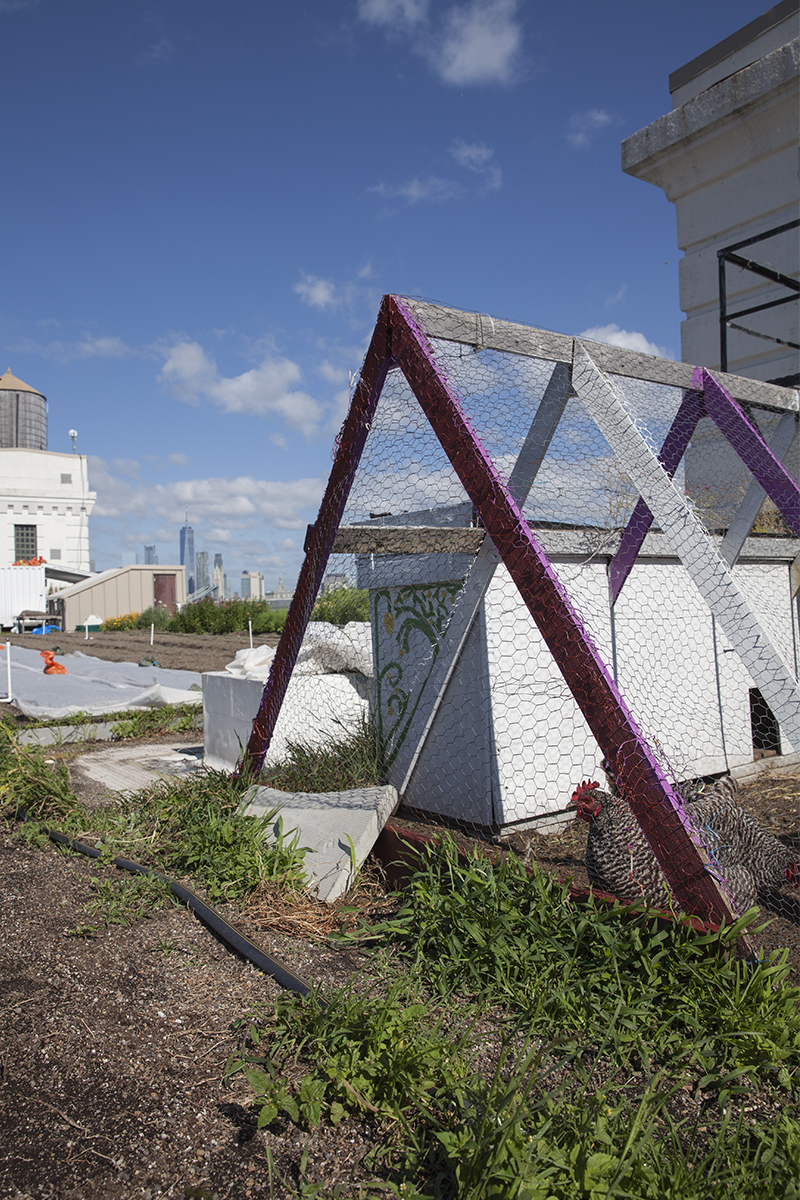
Chickens that live on the farm produce eggs used by Grange farmers. The shells are composted and fed to the soil.
One of those hats? Tour guide. When we visited the farm this summer, Ben showed us around with impressive ease, picking Thai basil, mysterious microgreens, and edible flowers (like peppery nasturtiums) for us to try. We left totally enchanted, and we’re not the only ones. “In addition to cultivating produce, we also host thousands of children each year via City Growers, a non-profit that educates youth about the environment using our roofs as a living learning laboratory,” Ben tells us. “We host over 100 events each year, ranging from workshops which inspire people to live more healthy lives [to] dinners, weddings, and yoga sessions. And we have created green spaces for clients all over the city—almost like parks, where we can share that space with the public as well and inspire others.”

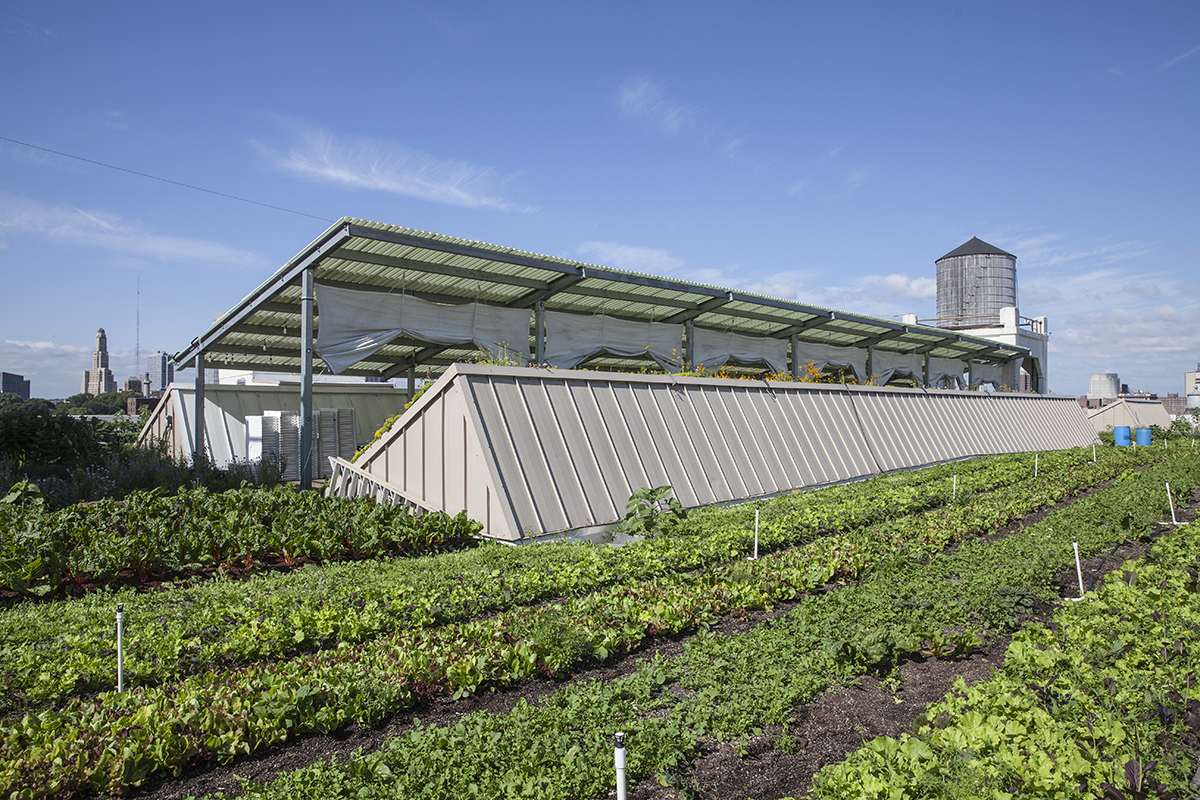
The farm grows wild flowers in spaces that aren’t large enough for produce crops.
The farm’s certainly impressive now, but getting it off the ground—no pun intended—proved challenging. Finding space with all the right specifications, from accessibility to strength (soil isn’t light!), was a process in itself. Then came negotiating and signing long-term leases, and, when that was done, the hurdles typically associated with running a business. “Growing in the city is a multi-faceted endeavor,” Ben says. “A small business is confronted on a daily basis with tough decisions and crossroads between sustainability and profitability. [T]he truth is that you want both, but there are constant compromises.”
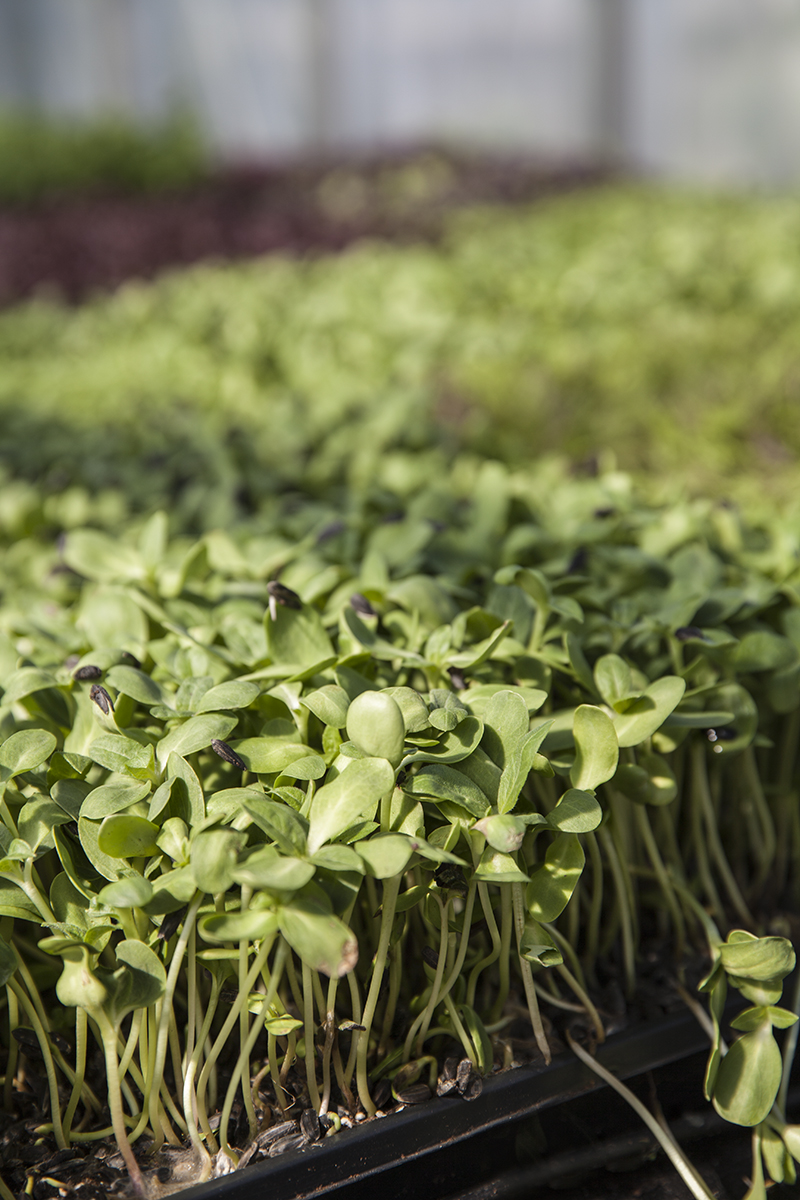
Microgreens
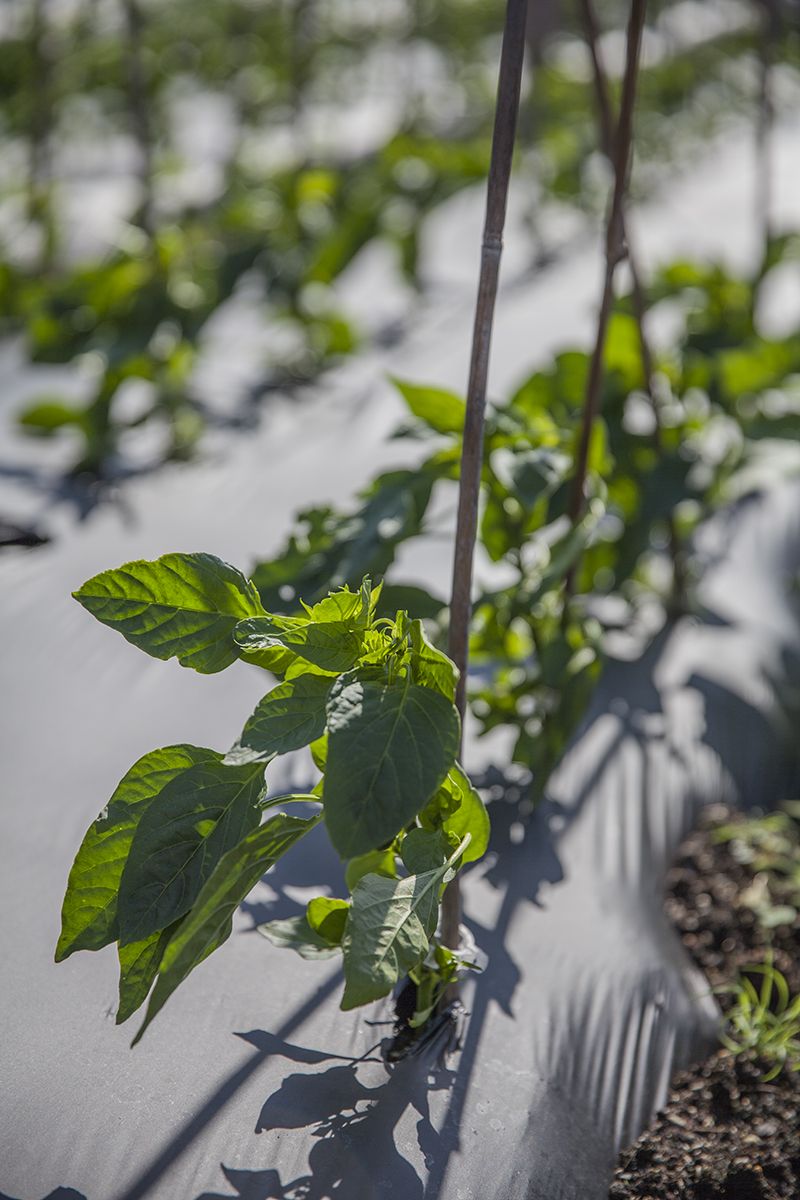
Soon, these plants will sprout peppers that will become an ingredient in Rooftop Garden Hot Sauce.
Sustainability is a key component of Ben’s work, but it isn’t always easy to reconcile with that whole “profitability” thing. “There are so many things,” Ben tells us, that he has to consider, so much to prioritize. Recently, he and his staff sought to replace the black plastic they were using as an artificial fertilizer on the farm. “It reduces water, keeps out the weeds, and encourages microorganisms to thrive in the soil. But it’s plastic and we throw it away when we’re done with it,” Ben laments. When a biodegradable alternative proved unsuitable for their conditions, Ben and company poured precious time and money into sourcing something that would work. “That was, for example, a project that we really wanted to tackle,” Ben says. “And we were proud to source that product. But we can’t quite do that amount of hard work for every single thing we want—we have to compromise and balance those constant decisions based on limited time and resources.”
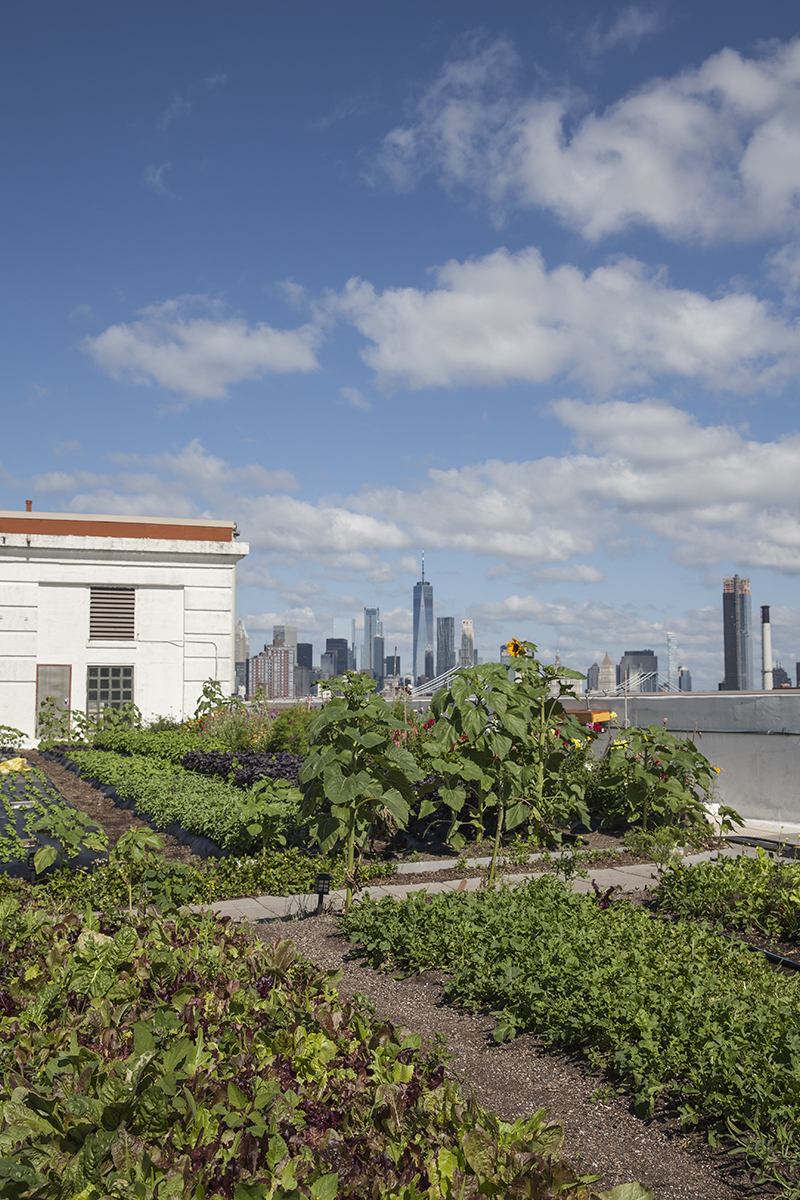
A farm with a view.
Still, Ben and his fellow farmers stay committed to running their business responsibly. “Our business has 15 full-time employees, and many more part-time people,” he tells us. “We have to fix broken things immediately, and tackle our challenges. Believe it or not, it helps [to] thrive on solving problems. There are so many little challenges which are constantly coming up—you have to actually be energized by them at times.” That enthusiasm shows, whether it’s in Ben’s inspired hosting or in the bright, punchy flavor of the farm’s hot sauce duo.
Get your own pair of tasty, tasty hot sauces »
Interested in learning more about Brooklyn Grange? If you’re in the area, e-mail them for information on weekly tours.

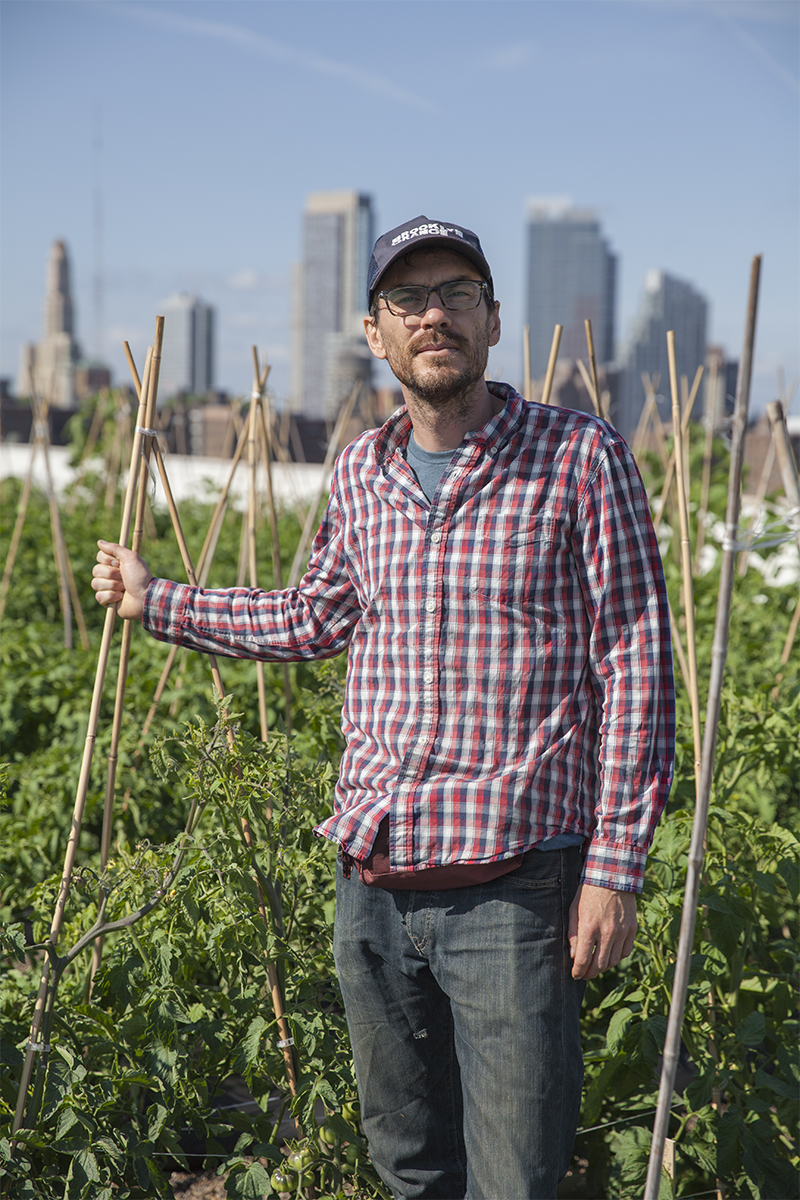
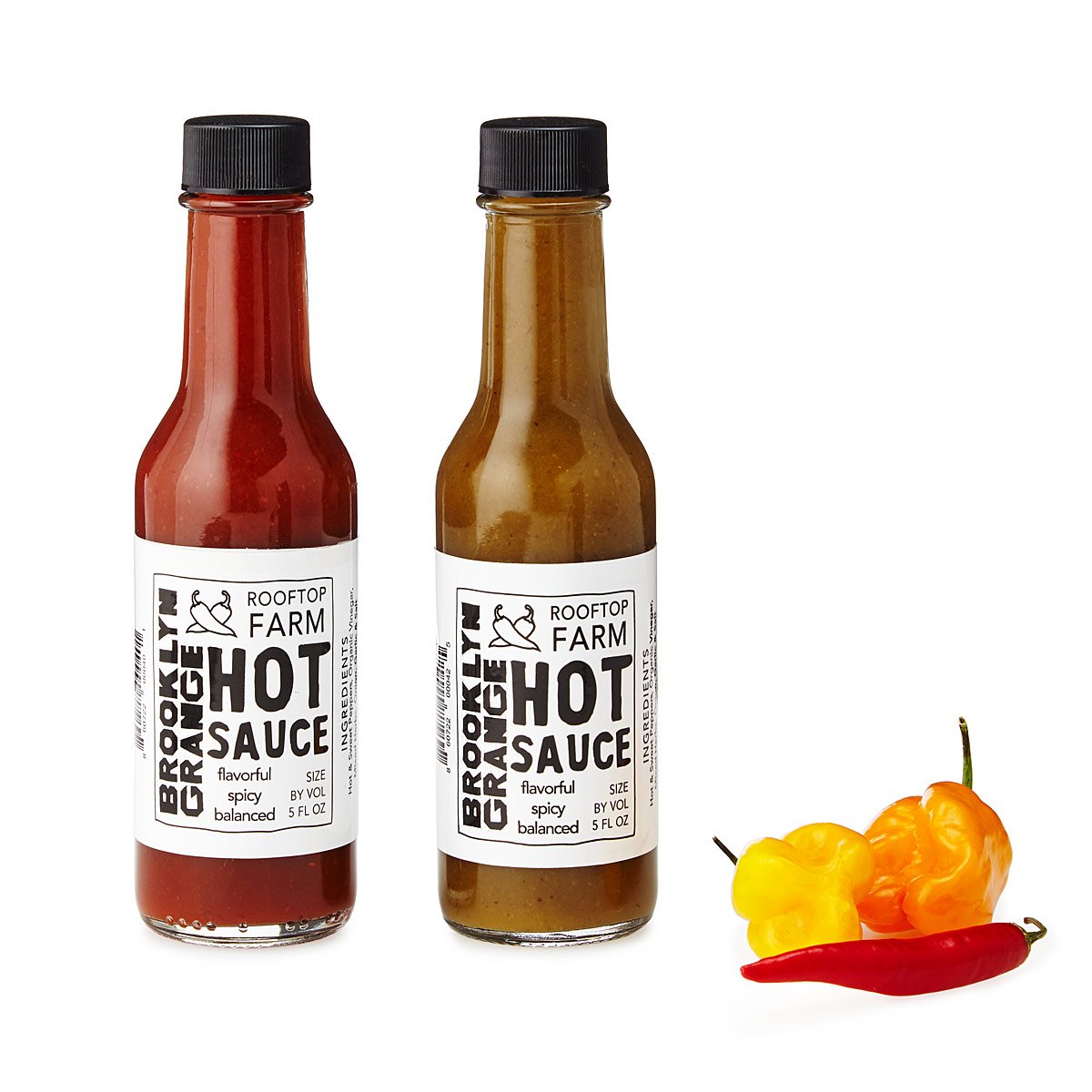
No Comments